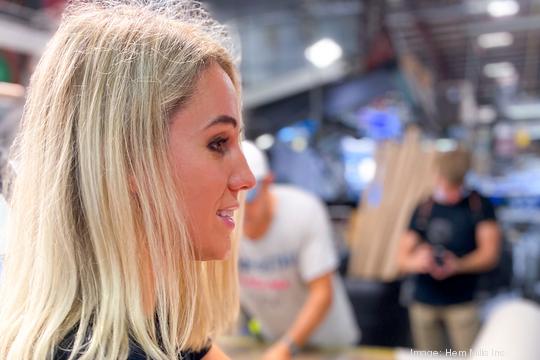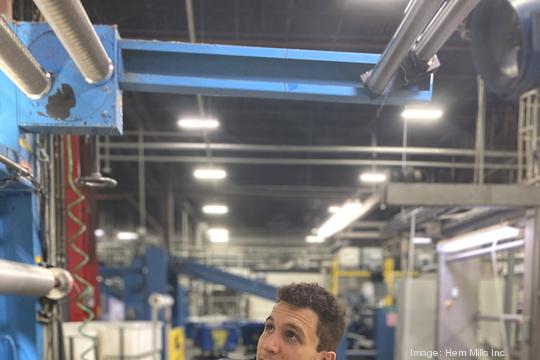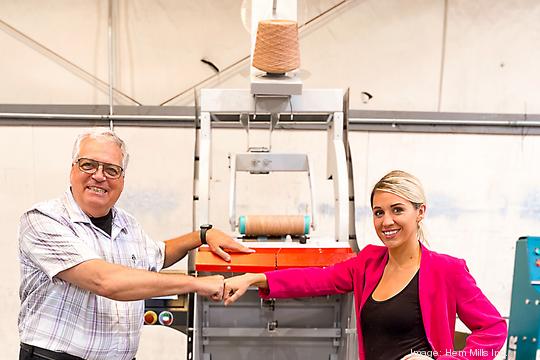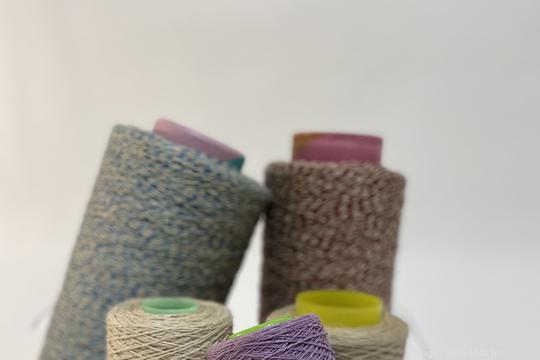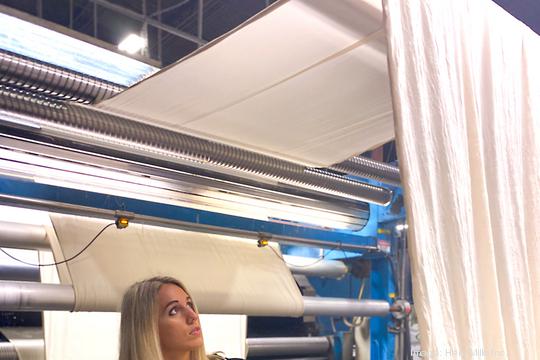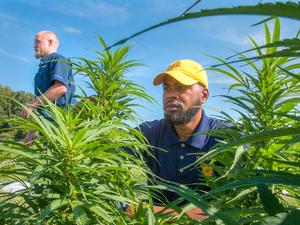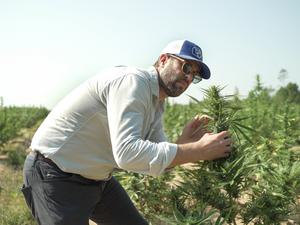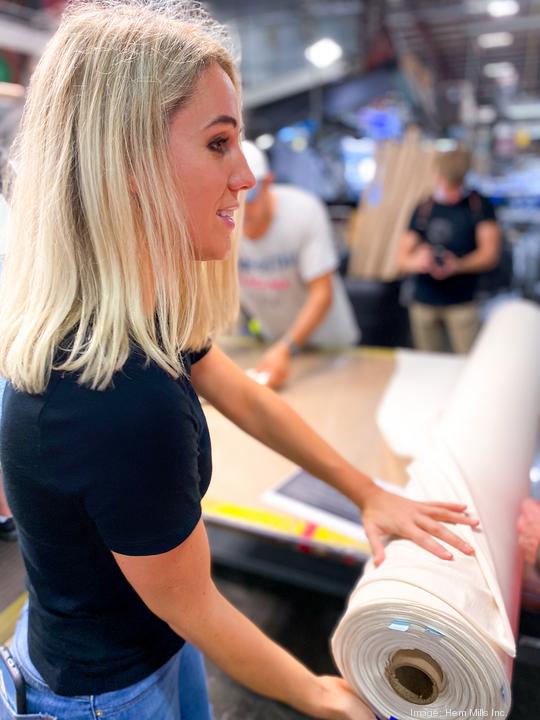
Among the challenges facing all aspects of the hemp industry in the Triad and across the state is the lack of vertical integration of the network.
From farmer to producer, the fledgling industry here has been stymied by little coordination in getting raw materials from the field into the hands of makers of the variety of products the plant supports.
One company is in the process of moving from Concord to the Burlington area, with plans to take matters into its own hands. Hem Mills plans to weave into its business model direct involvement in the cultivation of hemp fiber for the manufacturing of textiles made from the plant.
Madison Sexton, CEO of Hem Mills, told Triad Business Journal her company plans to invest $20 million in an 80,000-square-foot facility in the Burlington area. She has not yet finalized a site, but has narrowed her search to two undisclosed locations. The new site will allow Hem to expand its weaving operation by adding spinning capabilities in addition to more than 20 weaving looms, not including equipment it will move from its current facility.
Hem Mills: Weaving a future for hemp textiles and growers supporting them
Sexton said a private capital raise in excess of $20 million has positioned the company for the move, though declining to identify specifics such as the investors.
With production limited in Hem's current 15,000 square feet, Sexton expects to open the new plant in the fall and employment of the two-year-old company to grow from six to 32 by the end of the year.
The company did not receive any state or local economic incentives to help make the move.
Sexton said she views spinning and weaving hemp fiber as a mode to re-establish North Carolina’s global presence in the textile industry.
“Our clients are demanding the products we're making,” Sexton said. “We’re looking forward to making North Carolina the home of global textile exports once again and giving us a shot at competing on the global textile market.”
That ambition begins in the field, where according to the N.C. Department of Agriculture, only about 5% of the commercial hemp grown in the state is dedicated to fiber. That’s because, industry observers say, there is a dearth of customers for the raw material, which must be delicately handled and has a brief shelf life once harvested.
Sexton plans to increase the growing of hemp fiber by vertically integrating Hem Mills and partnering with growers and incentivizing them to plant the crop.
“We’re going to be setting up futures with farmers, meaning we'll pay them ahead of time,” Sexton said. “In about a month, we’ll start contracting out farmers. Just like with organic cotton, you pay farmers ahead of time for certain acreage and a certain yield, you work with them on what strains to grow, and how much to grow per acre, harvesting techniques and things like that.”
A business-to-business manufacturer of textile products specializing in hemp and and natural fibers, Hem Mills makes knitted fabrics, woven fabrics and elastics. Sexton founded the company as she was working to develop hand wraps made of hemp for boxers. Running a nonprofit boxing facility at the time, she noted prevalent staphylococcus from joint and wrist injuries, citing hand wraps made mostly of cotton and polyester as a factor. She believed hemp to be the answer.
Finding no companies weaving hemp in the U.S. because it had been illegal for years, she decided to start making the hand wraps as Hem Mills’ first product. In addition to the original narrow wovens, Hem Mills now makes broad woven fabrics as it develops new products that incorporate hemp.
“We work with a lot of eco-friendly, sustainable kind of startup, high-end clothing brands out of Los Angeles,” Sexton said. “That’s our main target market that we serve right now for the knit. The woven is more industrial furniture applications, but the main thing in the industry that was so limiting was that there are only a few options for domestic weavers and knitters for yarn. You have to import it from either China or Romania or Spain, so we decided to open up America's first hemp spinning, flax fiber spinning mills that will be doing linen and hemp.
“We'll be selling yarn in December,” she said.
In addition to moving to the heart of textile country, Sexton said the Alamance County location is critical because of the area’s proximity to prospective farmers. All the hemp grown for Hem Mills will come from a 100-mile radius of the new plant.
“We're aiming for a negative carbon footprint, so all these things are imperative; the proximity of the farmer, what farming techniques the farm is using, water usage and things like that,” Sexton said. “We’ll be involved from the ground up. We're using a lot of Romanian growing methods. Our strains are strains they use in Kentucky, some of them are strains coming out of Europe, so we definitely have to be involved and proximity to the farmer is huge.”
